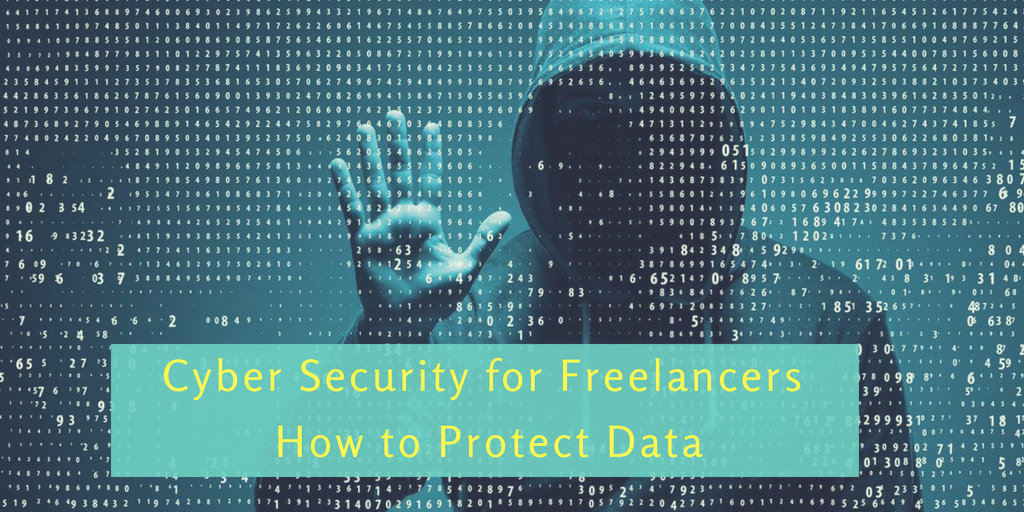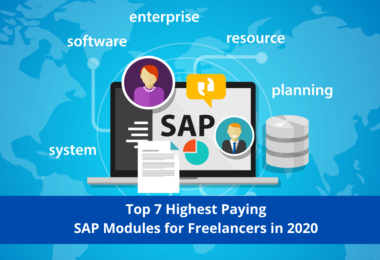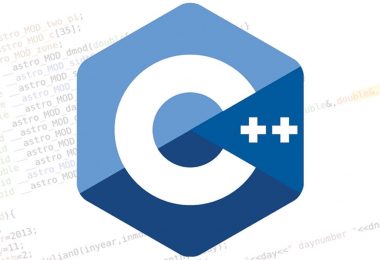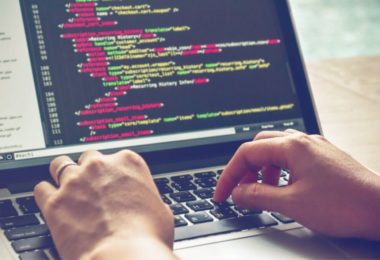
Full-time freelancing has many advantages, such as self-employment, work schedule flexibility and working on multiple projects with multiple organizations simultaneously. However, there’s one big problem that freelancers (as well as businesses) sometimes fail to consider – Cybersecurity.
We freelancers are often given tasks on project development, working on files and other online documentations without having any security tools or employee policies, which most permanent employees benefit from.
Mohamad Ali, president of Carbonite, a data solutions providing company agrees, “This puts freelancers in a precarious situation, since they’re usually left … protecting [their own] personal and business files when working at home or from the road.”
“IT staffs have little visibility into the configuration or software load of the employee’s computer. That means that the remote worker is at risk of running software, or using hardware that is vulnerable to attack”, he further adds.
However, without having an enterprise level security or backup system, you can still do a lot as a freelancer to protect your client’s and your data securely.
Careerlancer has listed 5 best cyber security practices for freelancers that you can adhere to prevent theft, illegal access to sensitive information and data loss.
Don’t Work From an Unsecured Connection
Public Wi-Fi is the biggest source for potential threats. If you are working professionally at a public location such as café, airport or restaurant, you should connect your laptop to a smart device or use mobile phone hotspot.
However, irrespective of the network connection you are using, be it a public Wi-Fi or private hotspot, you should encrypt as much traffic as possible by routing internet through a Virtual Private Network (VPN).
You should also make sure to enter sites that use HTTPS. And try avoiding accessing any sensitive data such as entering credit card details or online banking credentials, when in a public area.
We also suggest you to crop down your list of trusted public Wi-Fi that you might have accessed in the past. Attackers usually use common Wi-Fi names to set up their own hacking network. Your computer will automatically connect to such networks without your approval.
Upgrade and Update Your Software Systems and OS to the Latest Version
You leave your computer or smartphone to security holes that are left unattended in previous iteration, when you don’t update or install latest software or programs.
Any freelancer who is working outside an enterprise or home network should keep their personal devices, including smartphone and ipads, operating system, applications and other software upgraded to the latest version all the time.
Your software upgradation and maintenance work should be best done at home, under a protected WiFi network. Never update any software or OS on a public WiFi network. Downloading several MBs worth of updates not only slows down the connectivity but also allows scammers and hackers to use fake update notices and fool people into downloading malicious files.
One of the best ways to keep your data and information protected is by changing your passwords frequently. It’s a reminder for freelancers to regularly create new and difficult to guess passwords for all their accounts, programs, devices and personal WiFi networks.
Even if it’s Facebook, Twitter or Gmail, you have to change your password every other month for complete protection against cybercrimes.
Don’t Hesitate to Purchase a Backup Solution
Invest in a good backup system for your data and information. You may think that Google Drive and Dropbox are good cloud storage solutions for client’s projects. But there’s a huge difference between storage and backup.
Cloud storage is just a substitute for emptying your device space. There are chances of data loss through overwriting, forgetting to manually update files or by accidental deletion.
A cloud backup automatically and continuously backs-up all your files and data. The software, besides, scans the changes along with each back-up.
In fact an effective backup also protects your data from versioning. So, if you overwrite a file, you can find the older version saved in the cloud, thus saving your hours of re-doing time and effort.
Back-up solutions provide encrypted files, which means enhanced privacy and security. With the help of cloud back-up you can also retrieve or recover files from a stolen or damaged device.
Data Encrypting and Scanning is Must
As a freelancer, one of your biggest business tools is your laptop, desktop or the mobile phone. You should protect them like how an owner protects his business.
Although, you may not ideally be able to invest on a high-end enterprise security solution, you can always invest on an encryption solution and secure your data and information on your devise.
Today with so many digital and technological advancements, data encryption has become very important. You have to ensure that your data is encrypted from end –to-end all the time. This way, even if the network transit get compromised at some point, the stolen or hacked data would be useless.
There are several encryption software that you can choose to buy online. Here’s a link that compares the best encryption software of 2018.
Furthermore, any file downloaded from the web or uploaded from USB drives should be thoroughly scanned using a good Antivirus and internet security software.
Request Clients for Access to Security Resources
You could ask you clients or point of contact if they will allow your access to company’s security resources as a freelancer. You can choose this option if you doubt your ability to protect client’s data from your side.
The company’s secured server can know your location, devices, how the data is being accessed and who accesses it. BYOD, Mobile Device Management, Endpoint/Device Security Management and VPN and IPSec tunnels are few solutions that enterprises implement for freelancer’s data security.
However, in here you will get only limited access. Nonetheless, your data and activities will likely be more secured with enterprise level firewalls, encryption, backups and filters than your devices and storage options.
Accessing client’s security resources will also prove cost beneficial for you. If you have along term contract with a particular company, asking shouldn’t be a problem.




